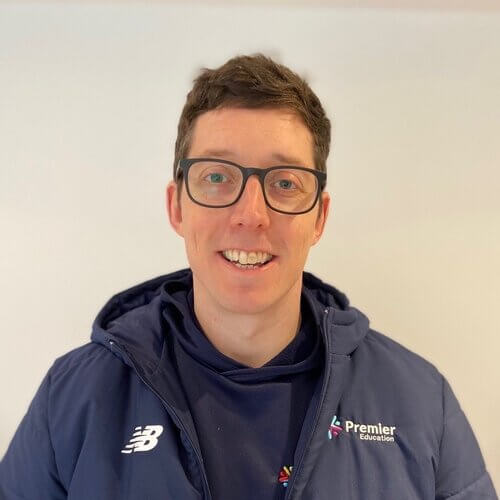Teaching PE in primary schools – How to make the perfect plan

Author: Michael Brennan
As a subject lead for teaching PE in primary schools, planning was one of the most important parts of my job. Without a robust plan, it’s hard to implement lessons effectively.
But every school is different – there is no ‘one size fits all’. That’s why PE plans have to be adapted to best serve the changing needs of the pupils.
Want to improve PE delivery in your school? Revitalise your planning using my top tips:
Maximise active time
A recommended two hours of physical education per week is simply not enough, especially for kids who are struggling with their health and wellbeing. I would like to see schools offer a statutory two hours and, if not, look at the other ways that physical activity can be included in the school day. Golden Mile or energetic brain breaks offer an excellent opportunity for children to be active on top of PE time. Or set up a breaktime equipment cupboard to help children remain active in between lessons.
Step outside the timetable
The timetable is so structured and packed that, for some schools, there’s no scope to branch out during the school day. Look for quick wins such as after-school clubs which encourage children to learn new skills and try something different (especially popular activities such as gymnastics, yoga, or archery, which may be side-lined from curricular PE).
Skills AND attitude
PE isn’t just about physical literacy and movement, so make sure that your lessons are an opportunity to develop social skills, emotional literacy and resilience. I encounter children in Years 5 and 6 who still can’t deal with losing. It’s part of life so PE should help them work through that. If they lose a game, look at what went wrong and how they can improve.
Break the mould
All too often PE lessons cover the same sports year after year. I encourage schools to offer different sports each year, repeating them at least once. For example, offer tag rugby in Year 3 and again in Year 5. This gives children a wider outlook and is great for skills expansion. It may also encourage kids to join a local club, which could put them into a sport for the rest of their lives.

Wet weather contingency plan
When the weather’s bad it’s too easy to pop a dance video on the TV. Instead, plan a serious and physically active alternative. Portable indoor table tennis tables are excellent as they work on skills development, so strategy, hand-eye coordination and communication come into play.
Parent involvement
I’ve worked with schools who invite parents to join pupils for the Daily Mile first thing every Friday morning. Get the music playing, invite parents into the playground and create a positive weekly event which unites the entire school community!
Sport Premium
Sport Premium should form part of a strategic investment to improve physical literacy school-wide. Try to ensure your funding is spent across all areas. These should include developing your PE curriculum; connecting PE, sport, and physical activity with other curriculum areas; and diversifying your enrichment and competition offer. Look at mass participation opportunities which have the potential to inspire and engage every child in the school. An integrated long-term plan will produce better results than short-term thinking.
Keep revisiting the plan
It’s all very well having a plan but it’s crucial to keep assessing its success. Ask yourself:
- Am I pitching the level too high or low?
- What are the pupils’ achievements telling me?
- Do I need to adapt my lesson plans to better suit the children in the class?
- Do many children participate in a lot of sport outside of school?
- How can you create maximum impact for children for whom PE is their only exercise each week?
- Am I catering for the high ability children? Am I supporting the low ability children?
- Have I tailored my lessons for SEND pupils?
Less is more with planning. Keep revisiting the basics and ensure the plan is open to modification. That way, you’re in the strongest possible position to succeed.
About the author:
Michael Brennan is a former head of PE and now runs a team of activity coaches for Premier Education providing physical activity sessions to primary schools across the Midlands.

